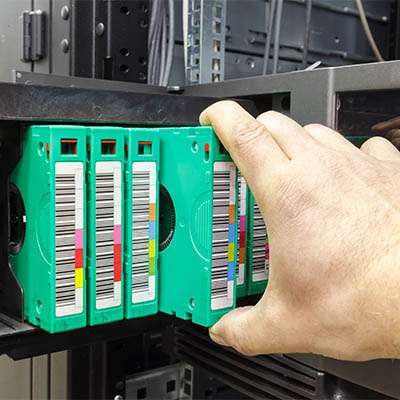Macro Systems Blog
Why Data Redundancy Is Imperative
When you read about concepts like network security and data backup, you might come across the phrase “redundancy” or “redundant.” Depending on your familiarity with the business of IT solutions, you might think of this as an odd term to use to describe something incredibly valuable. Listed below is a look at what this word means, especially in how it is portrayed in information technology.
Redundancy Defined
When you search “redundancy” in an online dictionary, you will generally get two different definitions with completely different connotations and meanings. For example, let’s take a look at Merriam-Webster’s definitions. One defines “redundancy” as “the quality or state of being redundant,” which can be further elaborated as “exceeding what is necessary or normal.” Other words that are synonymous with this definition for redundancy might include “unnecessary” or “superfluous,” so it’s easy to see how redundancy gets a bad rap… at least in this context.
When discussing technology or engineering, however, redundancy has a much different meaning. Merriam-Webster defines “redundant” as “serving as a duplicate for preventing failure of an entire system (such as a spacecraft) upon failure of a single component.” Suddenly it all makes sense; when something within your infrastructure is redundant, it means there is more room for error, and faulty components or user error are far less likely to sink operations in any meaningful way.
Flipping the Conversation
In a way, redundancy’s two definitions are polar opposites of each other. While one suggests that too much of one thing is superfluous and unnecessary, we would argue that having options and, more importantly, a contingency plan in the event that something unexpected happens is far from unnecessary. If anything, it’s even more of a requirement these days, especially considering the significant threats posed by advanced cybersecurity threats like ransomware.
Achieve True Data Redundancy Today
If you want to achieve complete redundancy for your business’ technology, we know of a couple places to start. In particular, you should focus on redundant data backup and disaster recovery with operations in a close second. If you can keep access to data consistent, then you should have no problem keeping operations going, provided you have a plan in place to address any operational challenges that might arise while you are in the midst of an emergency or disaster.
Macro Systems can assist your business with the implementation of any new technology that might be used to achieve this redundancy. To learn more about how we can use technology to aid your efforts at redundancy, reach out to us today at 703-359-9211.





Comments